Shaun White On Tom Brady’s Retirement Advice, Life After Snowboarding, & High West’s Snow-Saving Campaign
Snowboarding’s most decorated athlete is teaming up with the Utah whiskey distillery for a worthy cause.
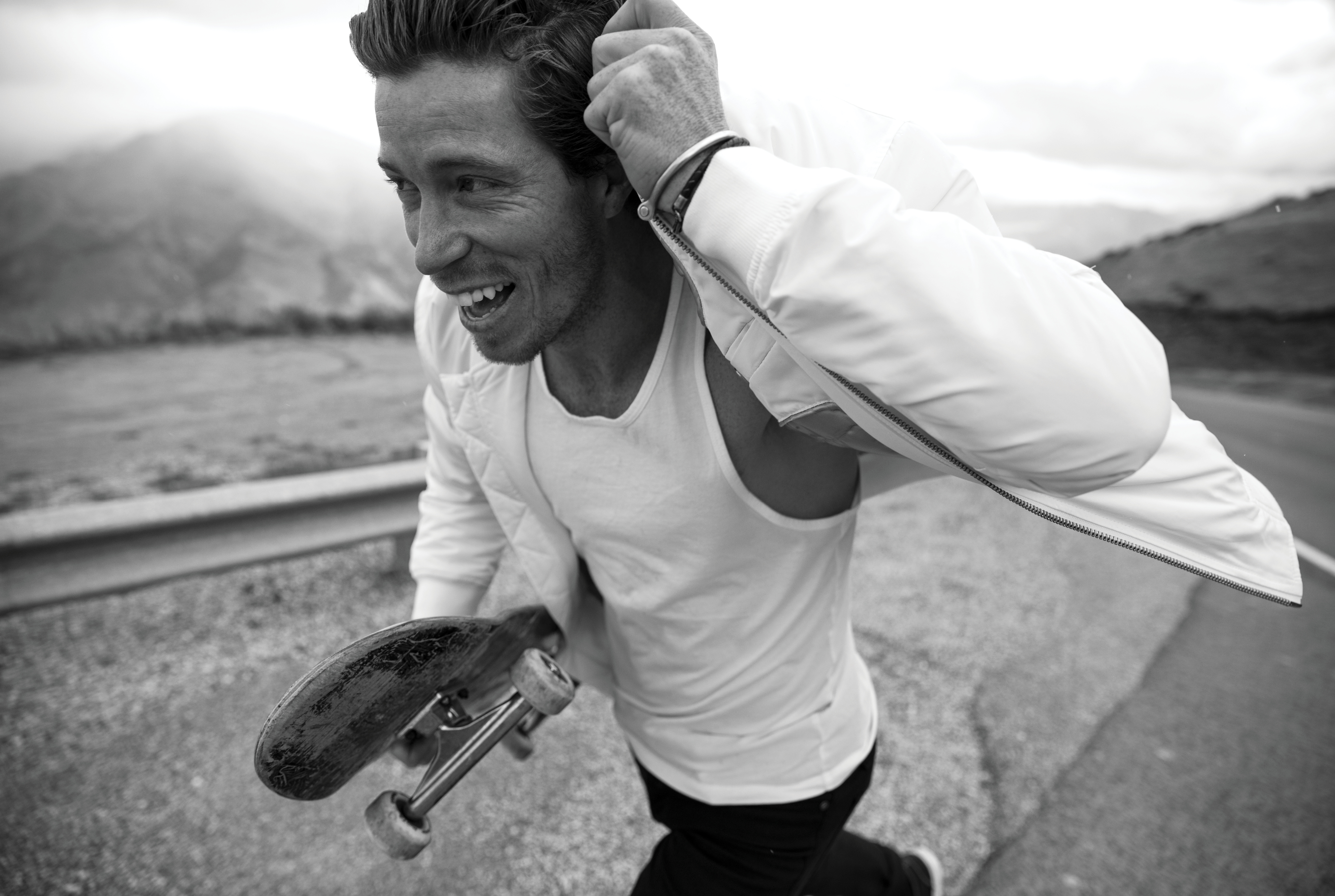
Overcast skies and flat light made flatter by intermittent snowfall comprised the weather on a late-winter day at the base of Park City Mountain. I was fumbling with my beanie and helmet next to a chairlift, waiting for my group to join me.
A rider dressed in a forest-green Whitespace jacket approached me and said, “Ready to tear it up?” I responded, “Yeah, who is that under there? I can’t tell with all the gear on.” A puzzled look probably formed beneath a black balaclava and goggles before the rider said, “It’s Shaun.”
I didn’t fortuitously encounter Shaun White, the three-time Olympic gold medalist and recently retired GOAT of snowboarding. The unlikelihood of that scenario might excuse someone in the moment for failing to recognize him with—as I’d so casually said—”all that gear on.”
I was lucky enough to receive an invite to interview him in-person on a trip organized by High West Distillery, an interview that I’d completed about 60 minutes before I forgot who he was and momentarily blacked out from embarrassment.
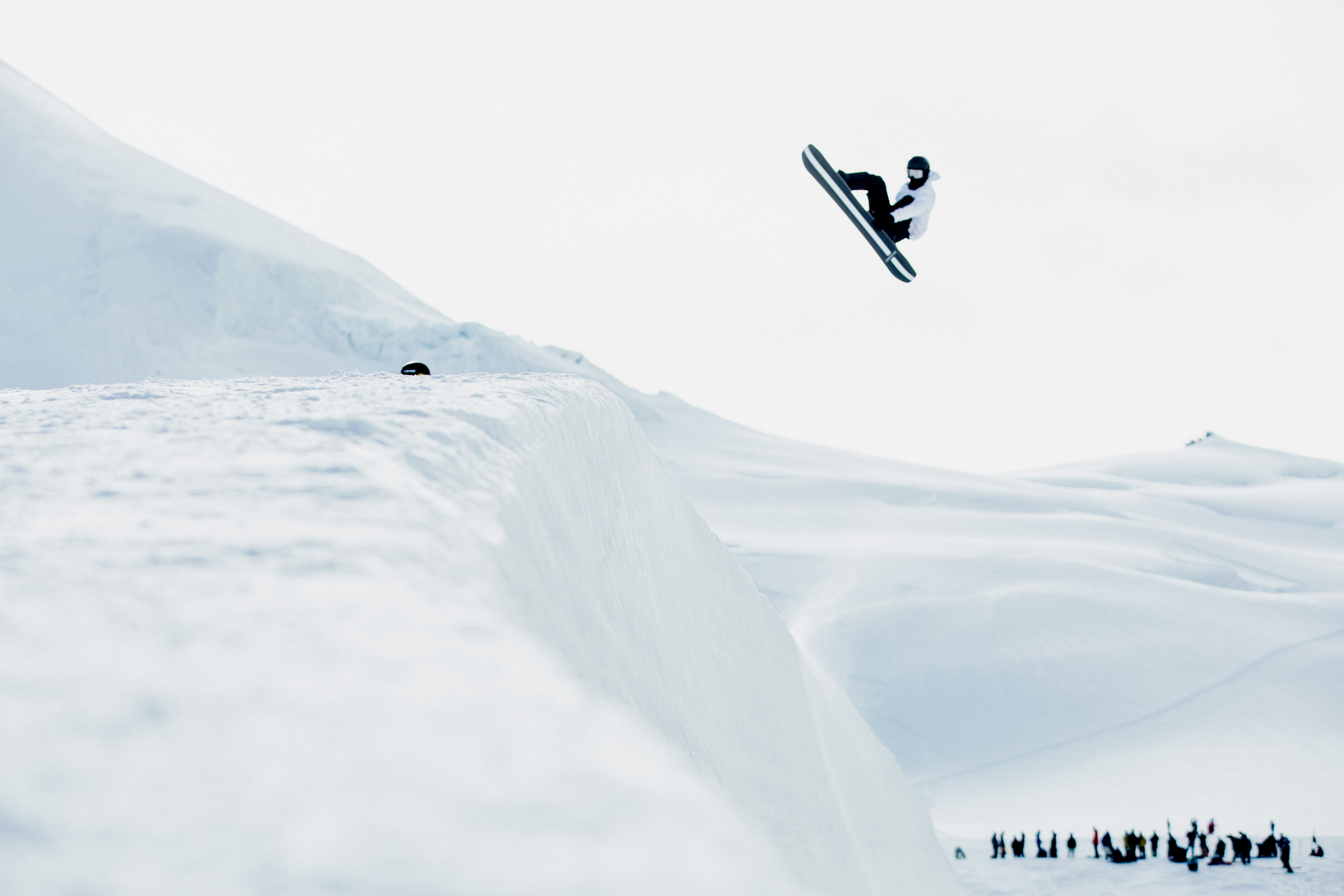
But White, who’s extraordinarily friendly, complimented my jacket and kept the conversation moving. He didn’t strike me as a viciously competitive athlete—though his 13 X Games and three Olympic gold medals tell me he is. He just seemed like a genuinely great guy. The good cause behind his partnership with High West is more evidence that my impression of him rings true.
Brands love to bill their celebrity partnerships as entirely organic arrangements that have everything to do with like-mindedness and little to do with financial motivation. But this celebrity brand partnership really is as organic as they come. White actually reached out to High West upon hearing of its Protect the West initiative, which launched in 2023 with the goal of raising $1 million over three years for environmental groups—the Wildland Firefighter Foundation, Protect Our Winters, and American Prairie.
Protect Our Winters, or POW, especially attracted White, as it was founded by fellow pro snowboarder Jeremy Jones to combat the harmful effects of climate change, including the shortening of the ski/snowboard season.
“I’m such a product of where I grew up—the access to skating, surfing and snowboarding, having a three-hour drive to the mountains,” White told me. “It was just the perfect environment for someone like myself to come out of, and when you see the shift in the seasons and the amount of snow, you go, ‘God, what are we doing? How do we do our part?’ Whether it’s with High West raising money or creating awareness, I just loved that I could join and become part of that.”
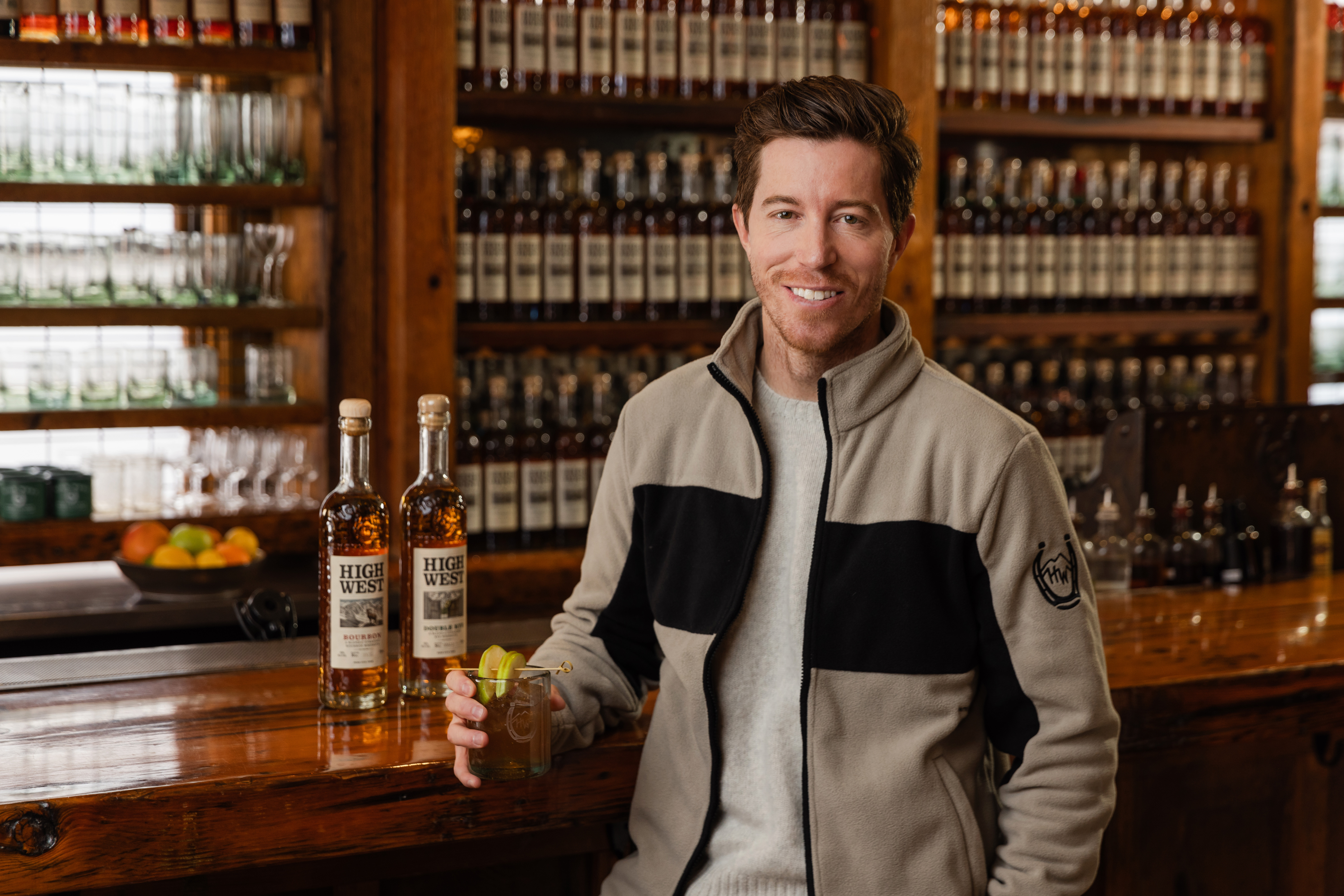
The folks at High West are as invested as anyone in protecting Park City from climate change. Not only is it an objectively good thing to do, but the brand’s identity (and entire visitor experience) is built around the winter sports haven. Its main distillery—which has spawned multiple bottles honored in Maxim’s annual Best American Whiskey lists—is located 25 minutes outside of Park City on a 3,500-acre ranch with gorgeous views of the Wasatch Mountains.
Closer, in downtown Park City, there’s the quaint Nelson Cottage, offering guests an intimate and unique prix-fixe dinner menu with whiskey pairings for every course (We highly recommend booking a reservation.) And at the base of Park City Mountain, there’s High West’s Saloon, which is distinguished as the world’s first ski-in, ski-out gastro-distillery.
The latter is where I interviewed White, who spoke openly with me about advice he’s received from fellow GOATs like Tom Brady, his Whitespace snowboard brand’s luxe collabs with Louis Vuitton and Moncler, the sport’s future, and more.
How did winning your first Olympic gold medal in 2006 compare to winning your first X Games gold medal in 2003?
X Games obviously was like the biggest thing out there because there was no [snowboarding in the] Olympics at the time. Winning my first gold at the X Games, I was 16—I won double-gold for pipe and slope. In the sphere of snowboarding, it was like having won the Olympics, at least I thought that that was the highest thing.
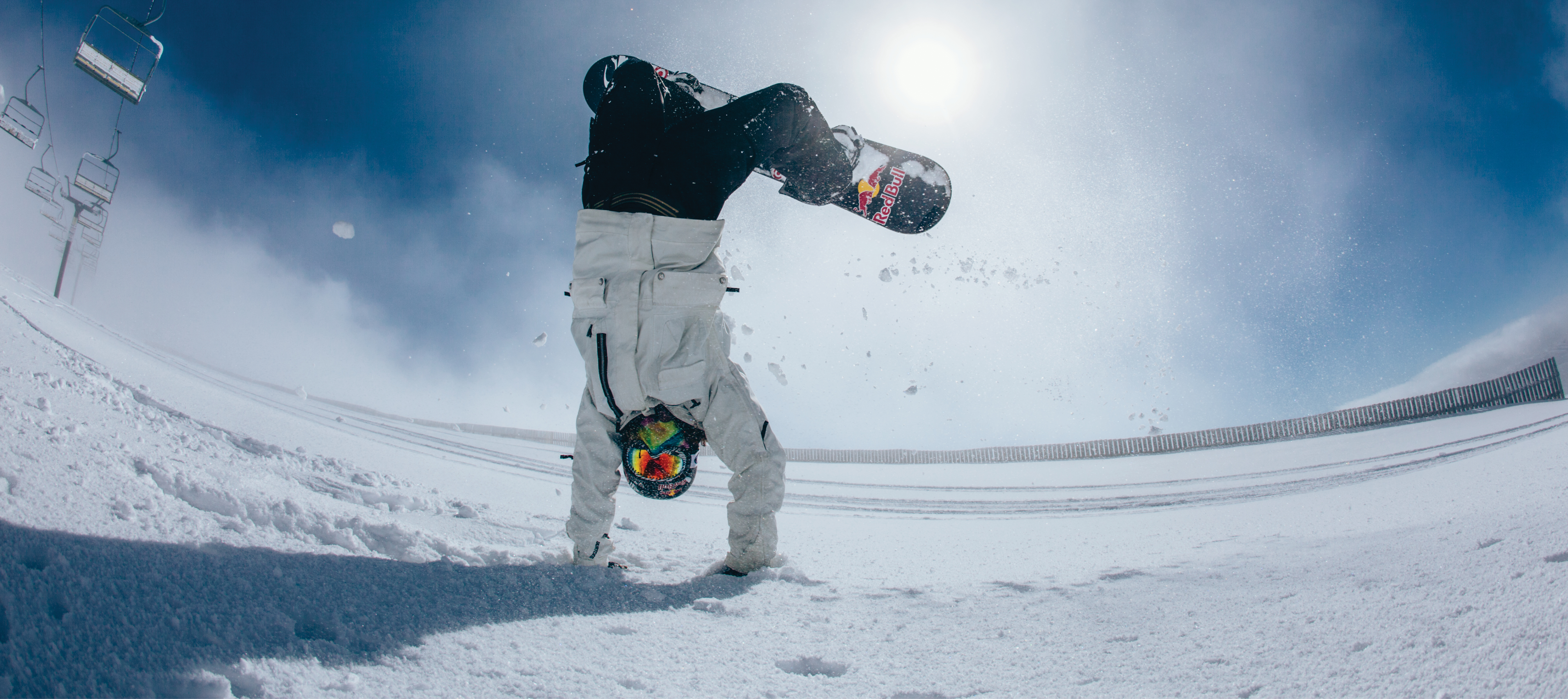
And then, once the Olympics came around, there’s a big difference between when your peers are watching and when the world is watching. When I came back from the Olympics, people were like, “Hey, you did it.” And I was like, “Yeah, I won. That’s cool.” And they say, “No, no, you did it for America. You won medals for our country.” My third Olympic gold medal was number 100 for America. But just going to the Olympics, you’re part of history.
In HBO’s Shaun White: The Last Run documentary, you say that after you won your first Olympic gold medal, you realized that the goal you’d been working toward forever didn’t make you feel fulfilled. So you looked to your second Olympic gold medal as the thing that would make you feel fulfilled, and it didn’t. What ultimately makes an ultra-competitive athlete happy?
Not to get too heavy on you, but for a certain period of time, I was receiving a lot of praise. And I would get connection, and stability in my life, from winning. But those are all exterior things, right? “These people think I’m great because I won, the media’s talking about me because I won”—it’s all external fulfillment. Especially if you don’t win, when you don’t do the things you’re supposed to do, then you’re really down and out. But even winning is never really enough until you go, “Hey, I’m good with myself without all this.”
Take away all the snowboarding stuff and the accolades and you think, “Am I a good friend? Am I there for my family? Am I a good brother?” You realize, “I am those things, and I have friends that that knew me way before I started snowboarding and still don’t care.” So you kind of get fulfilled through that and then you add everything else—it’s just kind of like flipping it on its head.
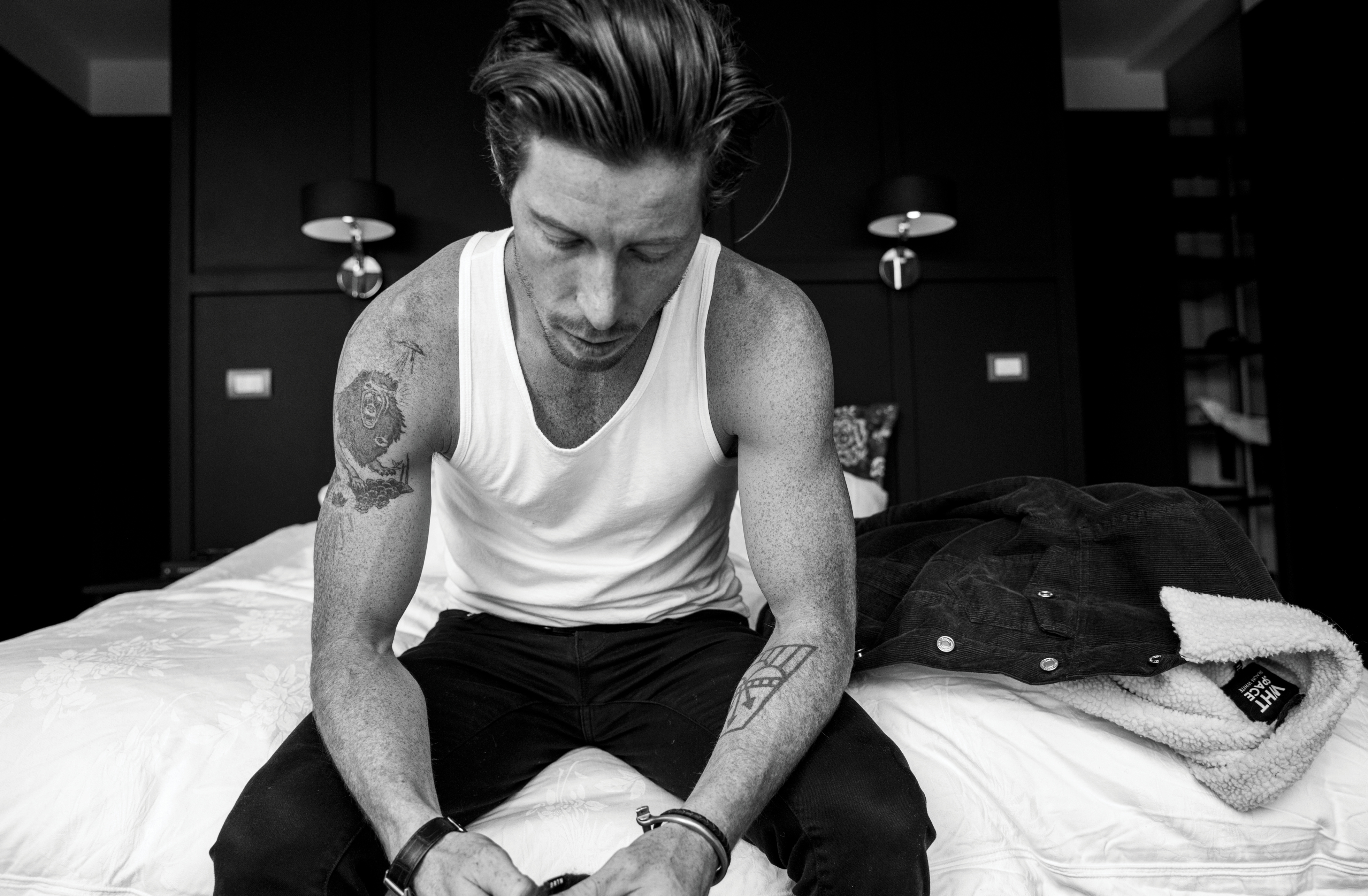
I had fun through it all. I wanted to win, but you push things aside to get to the top. Then you look around, and go, “Where is everyone right now?” I also did a lot of courses with [life coach] Tony Robbins and read some great books and that put me in a different mindset. I think it really helped me with retirement.
I appreciate you being so open about all of that.
The next kid needs to hear that because I didn’t hear that until I heard Michael Phelps talk, and I was like, “Shit. If anybody knows and understands, it’s him.” And he was saying similar things. I realized I wasn’t alone.
Have you ever received advice from other GOATs?
I just ran into the Tom Brady in St. Barths—now I go fun places during the winter because I have the time to. Just talking with him for a minute, he was just like, “Man, we did it. No one could take that away. That moment in time happened. The sights, the sounds, the smells, the taste of it all—we did it. Be hyped on that.”
A lot of athletes also tell you not to stop working out because it’s hard to come back, and to be OK with the nothingness for a bit. Enjoy the time, because something will grab your attention eventually.
A sequence from the HBO doc addresses your earliest major injury. You and Bob Burnquist were skating vert doubles and collided midair, leaving you, at age 11, with a fractured skull and a couple of broken bones. You say that this experience taught you that you aren’t invincible. Can you expand on that?
Any kid pushing the envelope gets put in-check pretty quickly. I always found that I had a certain ability to do things my friends couldn’t do when it came to jumping and spinning and flipping and certain balance things, which kind pushed me a little further—I didn’t get checked for a while. [When you do get hurt], you just kind of get stopped in your tracks.
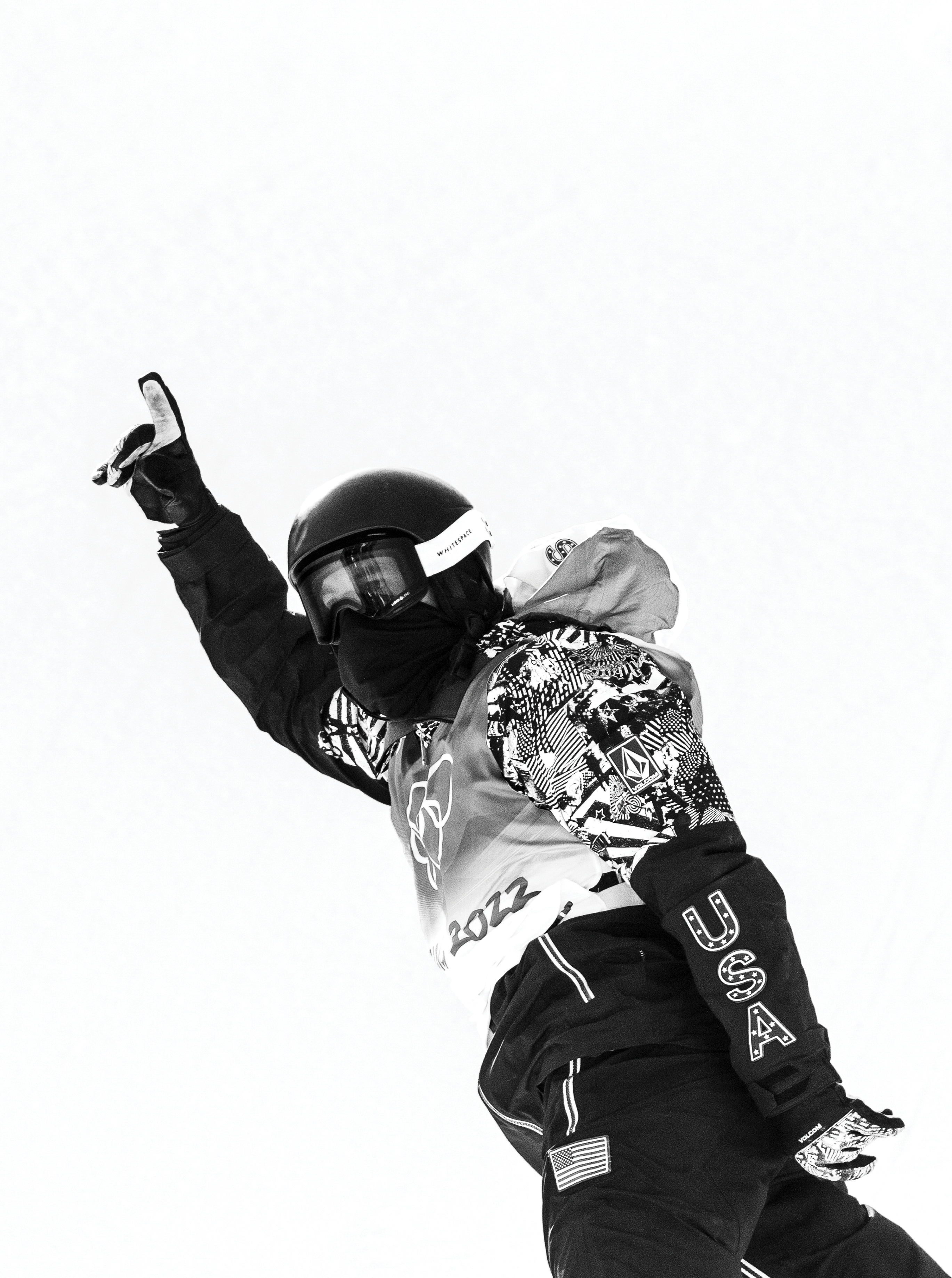
You go, “Something’s different. This has changed. And now I’ve got to kind of proceed with a new caution.” I don’t feel like it scared me or anything, I just went like, “Oh, wow. That was a really traumatic thing I just went through.” But that incident specifically felt more like an accident because I don’t normally skate doubles.
I don’t think most skaters usually skate doubles.
No, you don’t skate usually when someone is on the ramp. But my parents trying to explain that to our community that we lived in…. people didn’t really get it. They just went like, “Yeah, your kid got hurt.” The thing that tripped me the most is my mom’s interview; they asked her what she thought [of the accident], and she said, “We’ve just got to get him back on the board.”
I guess if your kid was in a traumatic car accident, you wouldn’t be like, “We’ve got to get him back behind the wheel!” But I think that they were just so supportive, and they knew it was an accident. They knew I love the sport.
What’s the coolest interaction you’ve had with one of the current generation of snowboarders who cite you as an inspiration?
It was pretty funny being at the top of the half pipe [at the 2022 Winter Olympics in Beijing] because I was retiring. A lot of the snowboarders were kind of huddled and smiling, and I was like, “What’s going on?”
And they’re like, “I’m a huge fan. Yeah, I used to wear your jeans at target. I used to play your video game.” And you forget the ripple effect of it all. It’s a weird thing to hear from a competitor because you’re like, “No, I want a confrontation, so I can try to win.” But it was cool. It’s crazy to look at these incredibly talented athletes that had their inspiration sparked by me. And here they are competing for their country in the Olympics.
Tell us a little about you and your brother’s snowboard brand, Whitespace.
Having been sponsored for my entire career, I didn’t realize how much of a crash course I’d had in how to do my own company. I’d already been product developing, product testing for brands, creating, being involved in the advertising campaigns, the fits and fabrics and all this stuff for the products.
I felt like when I was sponsored, it was my my job to best fit the mold they’ve created, but be myself. With Whitespace, we’re creating the mold. We think about what our ad campaigns are like, what’s our slogan, what’s our thing, what do we represent, who do we want to sponsor. The name Whitespace…. obviously it’s a play on my last name. And the term actually refers to a gap in the market, like, a void waiting for something new to fill the blank. I love that meaning. Because snowboarding is also a blank canvas, you can invent a new trick and become the best.
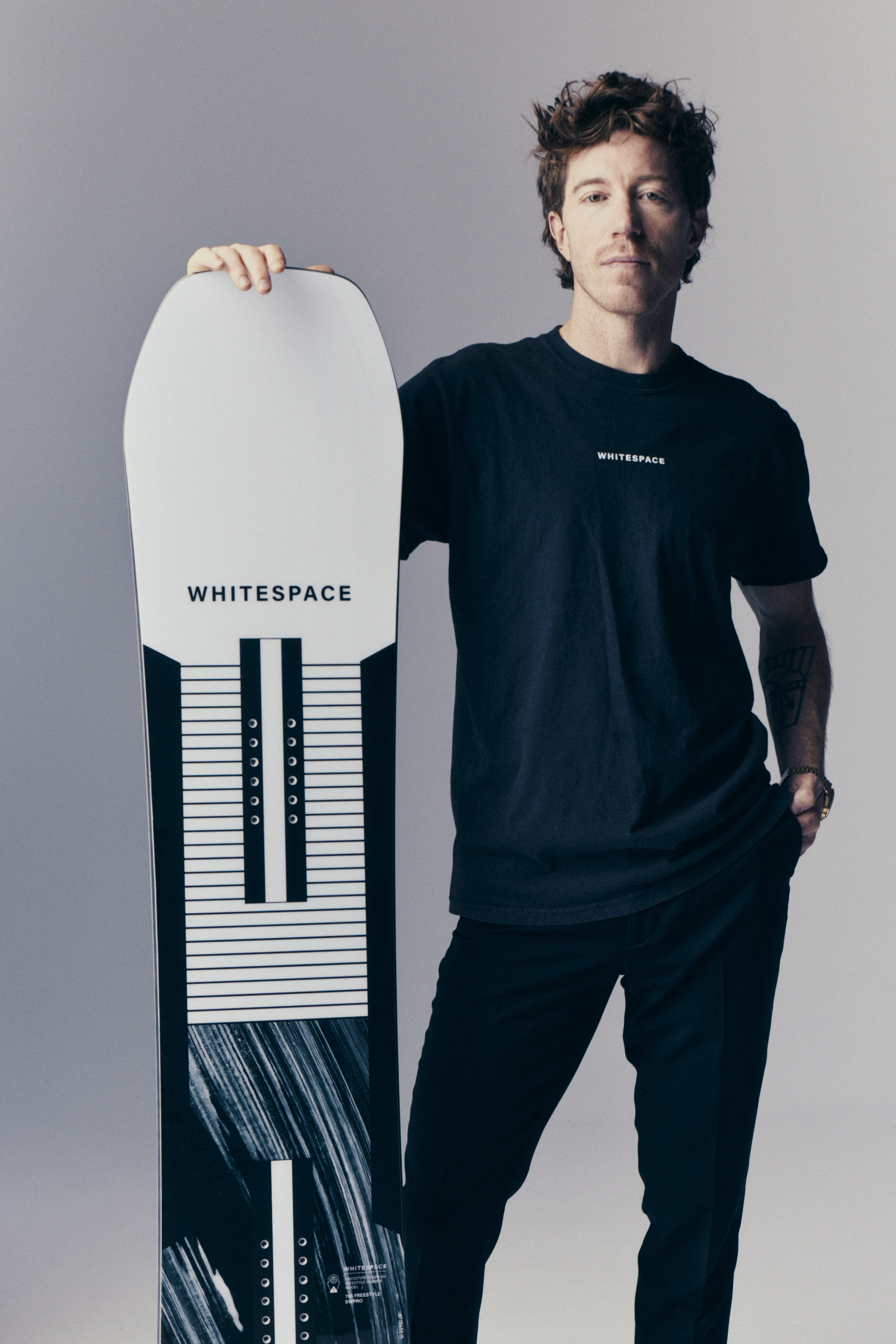
We’ve also done some really cool collaborations. We did a collaboration with Louis Vuitton out of the gate. I happened to run into [late Louis Vuitton menswear director Virgil Abhloh], who was snowboarding at Mammoth—he was the only dude in head-to-toe LV on the mountain. Unfortunately, he passed away before the collaboration came out, which is such a bummer. We just made a one-off set of luggage that I ended up bringing to the Olympics, which was sort of a moment in his memory.
More recently, we did a thing with Moncler, where we collaborated on a board with their Grenoble line because they want to take their fashion and then blend it with the function. And that’s what Whitespace has been all about. And we’ve got a bunch of fun people on the team. This guy Jonathan “Mamba” McDonald out of Big Bear, and this young Italian guy named Ian Matteoli who just set the record for the biggest spin [a frontside 2160]. It’s so cool to see our products out there doing that, and it’s still keeping me involved in the sport.
Your double McTwist helped push the sport to a new level in 2010. What are some of the tricks that are progressing the sport now?
You see Scotty James getting a lot of points and cred for spinning switch backside and these things. And he’s doing a sort of McTwist revert at the top of the run. The sport’s got that heavy spinning going on, but it’s still got the style component. I mean, I think his first hit technically is a 360 because he brings it back. So there’s a run right now in 2024 with a 360 in it that’s winning. That is really cool. There’s still the style components.
There’s also a big announcement that I’m going to make pretty soon—I can’t talk about it now—but I think it’s going to change the sport. It’ll be kind of like the new era. Stay tuned for that.
One more thing: I need some advice for later. Do you have a favorite après-ski cocktail?
Old-fashioned with High West Double Rye—it’s got a bit more spice to it.
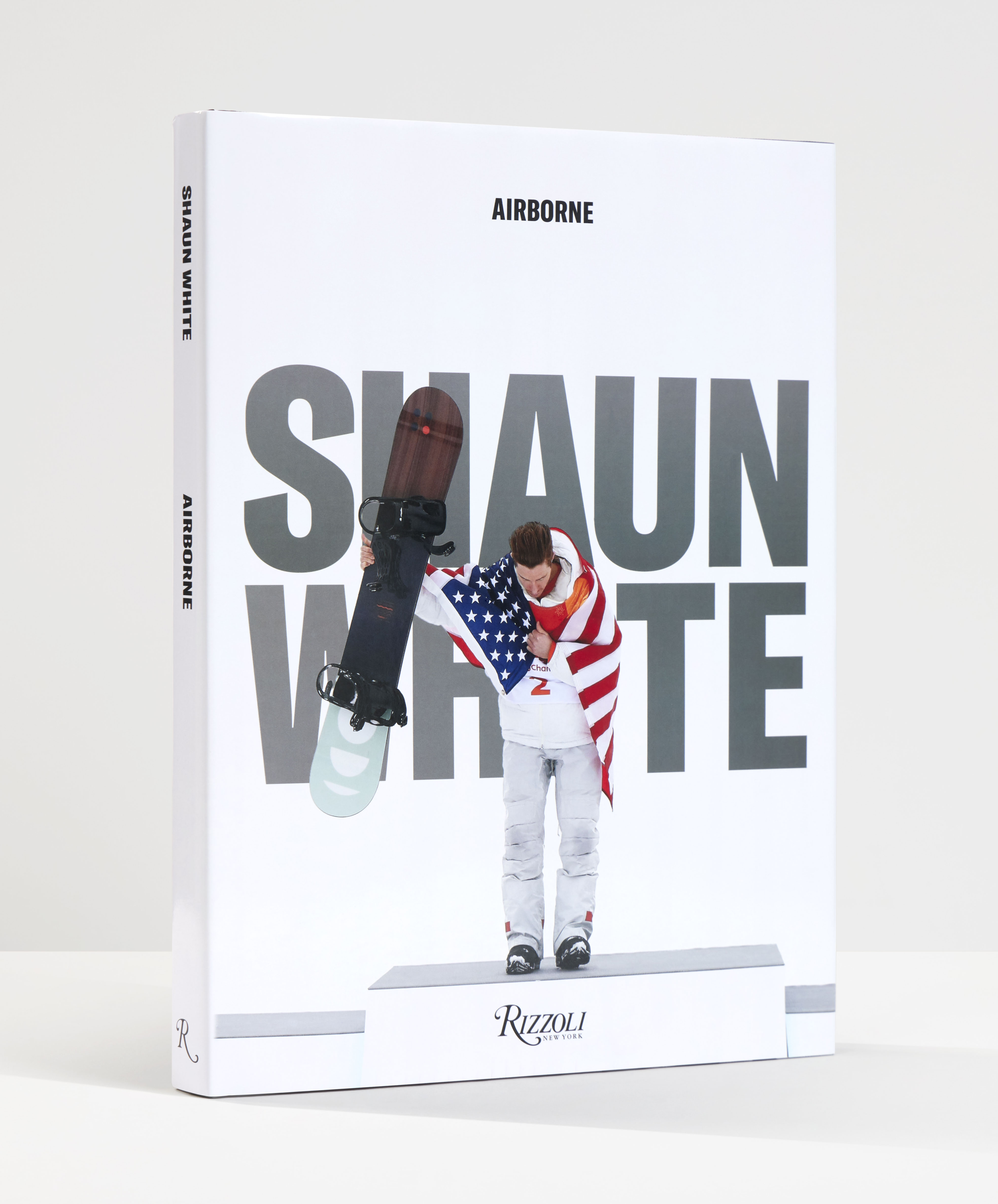
Interview edited for brevity and clarity.
